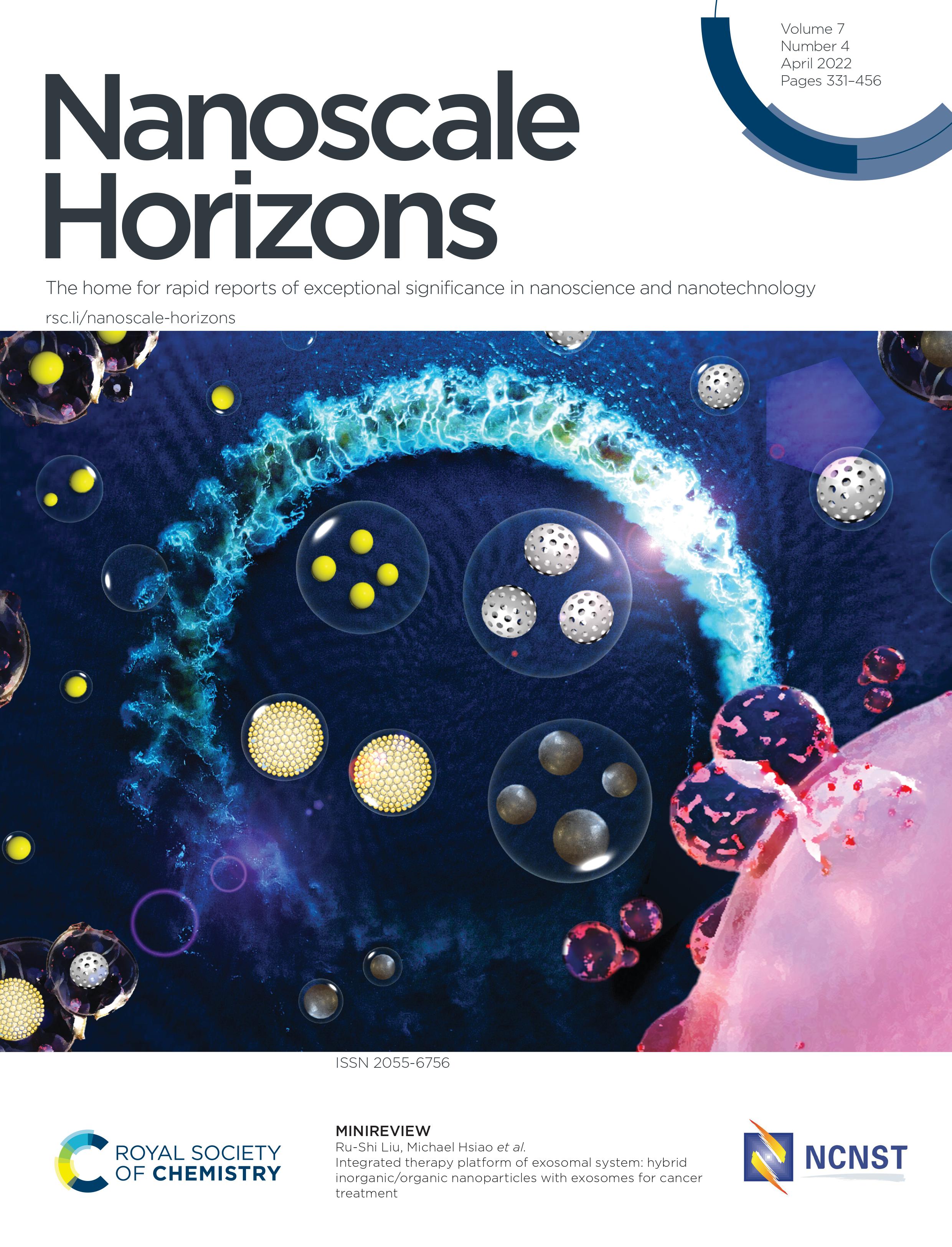News writer: Dr. Ming-Hsien Chan
Since James E. Rothman, Randy W. Schekman, and Thomas C. Sudhof won the Nobel Prize in 2013 for revealing intracellular vesicles’ transport regulation mechanism, such as exosomes, which initially believed the primary function was only exosomes that transport cellular waste. Due to the remarkable achievements of exosomes in the early diagnosis and treatment of diseases, he emerged from the scientific research circle and gradually became the darling of academia.
The team led by Dr. Michael Hsiao of Genomics Research Center compiled critical works of literature in the past five years and published an academic review article in the international journal, Nanoscale Horizons, aiming to explore the biological effects of diverse nanomaterials combined with exosomes. The application of this new platform in medicine is described as a huge wave that swept the entire clinical area. Based on the importance of the exosomes topic, this paper was selected as the inside front cover of the journal.

Briefly, exosomes are a type of extracellular vesicles, and their lipid bilayer membrane vesicles carry various signaling factors such as nucleic acids, proteins, carbohydrates, and lipids. Due to the unique biocompatibility of exosomes and the ability to have different types of inclusions, they can be used as diagnostic exosomes (dExos) and therapeutic exosomes (tExos), especially when therapeutic exosomes are designed to encapsulate unique bioactive molecules, such as tumor suppressor molecules or chemotherapeutic drugs. The tExos have great opportunities to be developed as cancer therapeutics with targeted ligands. In addition, exosomes are considered an excellent candidate for the diagnosis and treatment of end-stage brain tumors in glioblastoma (GBM) due to their ability to be developed into a multifunctional drug system that penetrates the blood-brain barrier.
There are still many issues to be clarified for the promising exosomes to serve as an anti-cancer platform for the medical system truly. The most important is the optimal design of the therapeutic dose and the tracking diagnosis of exosome liposomes. Using exosomes as a carrier to carry genes or proteins requires an amount of more than 1010 particles per milliliter to have a therapeutic effect. Recently research work indicates that using inorganic/organic nanomaterials as carriers, only 10ng per milliliter of the drug can produce the same therapeutic effect, which is equivalent to reducing the particle consumption of exosomes by a factor of 1000. Furthermore, inorganic/organic nanomaterials have various tracking and diagnostic properties that can be used to mark the location of exosomes. For instance, adding magnetic nanomaterials to exosomes can be tracked by Magnetic Resonance Imaging (MRI). In addition, the hybrid inorganic/organic nanoparticles with exosomes can also enable controlling the dose of drugs, further ensuring the safety of patients.
This paperwork involved two domestic and foreign scholars in providing critical insights on this topic-the research team of Dr. L. James Lee from the Department of Chemical & Biomolecular Engineering at The Ohio State University has developed a nanochip that can detect liquid biopsies, called Tissue Nano Transfection (TNT) chip. This device can observe RNA molecules in exosome particles released by tumor cells. Through this technology, early signs of cancer can be detected, and cancer screening accuracy can be improved. Dr. Lee said that the hybrid inorganic/organic nanoparticles with exosomes could significantly improve the real-time tracking of exosomes, allowing doctors to grasp the dynamic changes of exosomes. Dr. Chi-Ying F. Huang serves in the Institute of Biopharmaceuticals and Institute of Clinical Medicine, National Yang Ming Chiao Tung University, described that multifunctional exosomes are an indispensable therapeutic and diagnostic platform for present clinical practice. The high biocompatibility and drug-carrying ability of exosomes close to passing the U.S. Food and Drug Administration (FDA) permission. They are considered to be a new benchmark for future clinical applications. It can be seen that the efficacy of exosome diagnosis and treatment has been verified in many research works.
However, like the problems faced by most drugs in the clinical trial, the biological evaluation of nanomaterials still needs more scientific data to support the concept. Even if the hybrid inorganic/organic nanoparticles with exosomes show excellent therapeutic and diagnostic potential, their complexity still needs more attention from researchers in terms of safety and biocompatibility. The first author of the paper, Dr. Ming-Hsien Chan, and the co-first author, Zhi-Xuan Chang, said that the original purpose of writing this review article was to compile a multifunctional exosome drug platform that can be used for diagnosis and treatment at the same time. Hybrid inorganic/organic nanoparticles with exosomes can provide targeted tracking, improved blood dispersion, and avoidance of immune system clearance in the biomedical field. Nowadays, personalized precision medicine is becoming more critical, and the direct extraction of specialized exosomes from individual patients is the key to the great potential of this research.
It’s not hard to observe; cross-disciplinary cooperation is the only way to find innovative ways to solve problems. Although Dr. Hsiao is a pathology professional, he has made outstanding nanomaterials and composite medicine (Find the news link: Novel MMT-based iron/platinum nanoparticles designed to enhance MRI contrast and HCC treatment and Novel Nanomaterial Makes Targeted Lung Cancer Cells Evincible On Living Mice). Dr. Hsiao sincerely welcomes students and professionals from different fields such as biology, chemistry, medicine, materials, and other backgrounds to invest in this research topic together. The hybrid inorganic/organic nanoparticles with exosomes for cancer treatment and diagnosis platforms can sprout and take root, opening new personalized precision therapy and diagnosis possibilities.
The paper titled <Integrated therapy platform of exosomal system: hybrid inorganic/organic nanoparticles with exosomes for cancer treatment> can be found online at: https://pubs.rsc.org/en/content/articlelanding/2022/nh/d1nh00637a
Inside front cover of Nanoscale Horizons: https://pubs.rsc.org/en/content/articlelanding/2022/nh/d2nh90012b